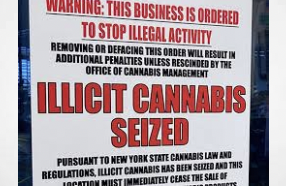In 2024 the state of New Jersey’s approach to cannabis-related driving under the influence (DUI) remains an ever complex and evolving legal landscape.
Following the legalization of recreational marijuana in 2021, the state has grappled over the last few years with how to effectively regulate and enforce DUI laws concerning medical cannabis use.
While cannabis is legal for adults over 21, driving under its influence is not, leading to potential legal repercussions for users who operate vehicles after consumption.
Legal Framework for Cannabis DUI
New Jersey’s DUI laws encompass both alcohol and drug-related offenses under the same statute.
Specifically, the current laws prohibit driving while impaired by any narcotic or hallucinogenic substance, including cannabis. Unlike alcohol, where a clear blood alcohol concentration (BAC) limit exists (0.08% for adults), New Jersey does not as yet have a defined THC limit for drivers.
This absence complicates enforcement and prosecution in the courts, as THC can remain detectable in the body long after impairment has subsided.
Testing Methods
Law enforcement in New Jersey employs Drug Recognition Experts (DREs) to assess whether a driver is impaired by marijuana. These specially trained officers evaluate a suspect’s behavior and physical condition rather than relying solely on chemical tests like blood or urine samples
In 2024, a proposed bill aims to expand the state’s implied consent law to require blood tests from drivers suspected of being under the influence of drugs, including marijuana. Critics argue this could lead to disproportionate targeting of minority communities and question the scientific basis for determining impairment through such tests
Penalties for Marijuana DUI
The penalties for a DUI involving marijuana can be severe and mirror those associated with alcohol-related DUIs. For first-time offenders without aggravating factors, penalties may include fines ranging from $300 to $500, up to 30 days in jail, and mandatory attendance at an intoxicated driver resource center
Subsequent offenses can lead to harsher penalties, including longer jail sentences and increased fines.Importantly, DUI charges related to marijuana cannot be expunged in New Jersey, meaning they will remain on an individual’s record indefinitely. This permanence can have lasting implications on employment opportunities and personal reputation.
Defense Strategies
Defending against a marijuana DUI charge requires a nuanced understanding of both the law and the science of impairment. Since there is no definitive test for current impairment due to THC—unlike alcohol—defense attorneys often challenge the validity of the evidence presented by law enforcement. Factors such as the timing of consumption relative to driving and individual tolerance levels can be pivotal in building a defense when hiring a lawyer to go to court.
Moreover, if law enforcement conducted blood or urine tests without proper consent or adherence to medical protocols, defense strategies may successfully argue against the admissibility of such evidence in court
Conclusion
As New Jersey continues to adapt its laws surrounding cannabis use and driving, individuals must remain informed about their rights and responsibilities. The legalization of marijuana does not equate to freedom from legal consequences when it comes to driving under its influence. Understanding the implications of cannabis DUI laws in New Jersey is essential for responsible use and compliance with state regulations in 2024 and beyond.



















